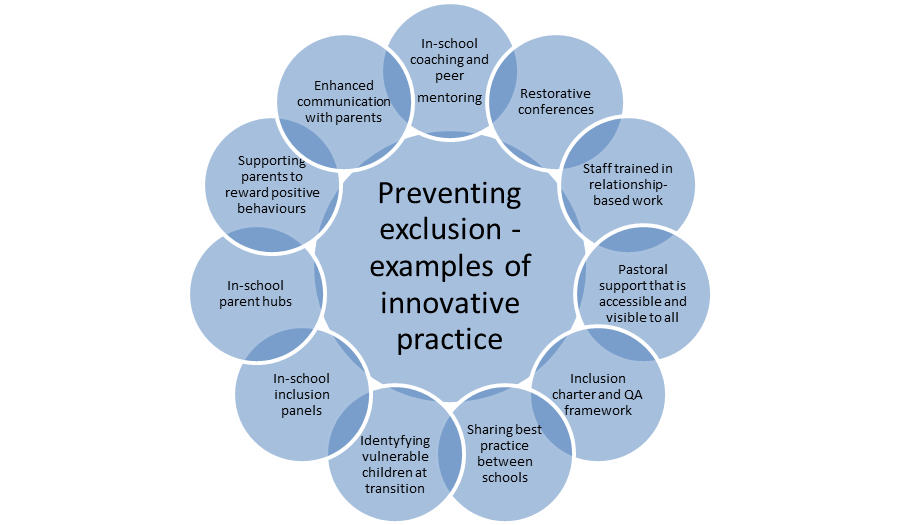Suspensions and permanent exclusions – general principles
Core values
In March 2020, the RSA (Royal Society for the encouragement of Arts, Manufactures and Commerce) published a report reviewing the evidence base in relation to preventing school exclusions. The study spoke with key stakeholders in schools and local authorities across the country and identified that where schools had succeeded in achieving full or near to full inclusion, five key conditions necessary for change had been achieved:
- Every child has a strong relationship with a trusted adult in school.
- Every child’s parents/carers are engaged as partners in their education
- Every child attends a school with an inclusive ethos.
- Every child is assessed for learning and other needs throughout their school career and there is capacity to provide appropriate support.
- We know where every child is in the system to ensure they can benefit from the four conditions above.
We recommend that schools, in partnership with the local authority and other lead agencies, adopt these core principles as a common best practice framework at the strategic and operational level, but also as a guide and benchmark to consider practice in each individual case.
Prior to considering a permanent exclusion - in addition to ensuring local and statutory guidance is followed, the professionals surrounding and supporting vulnerable children should also to consider whether these conditions have been met and all opportunities for diverting the young person from exclusion have been fully explored.
Whilst schools will continue to use their existing behaviour and inclusion policies, the approaches highlighted below have been identified as beneficial in-school strategies for reducing exclusions. The school SPOC or the SEWOs in EIT are available to discuss support for schools in developing these policies. They're included below as general guidance to best practice at the ‘whole school level’.

This guidance for inclusion practice has been developed with the understanding that effective collaboration has not always been easy to achieve, and with the aim of renewing and reinforcing the local authority’s commitment to ensuring that every child at risk of exclusion has their needs met in an effective and timely way. This will require all professionals and practitioners with responsibility for promoting the safety, wellbeing and learning of children to recognise their role in achieving these aims.
We acknowledge the need to build on shared values across services and in collaboration with schools and deliver practice that acknowledges that it is the responsibility of everyone working with a child and family to work to their prevent exclusion and them in education.
Page last updated: 16 January 2023
